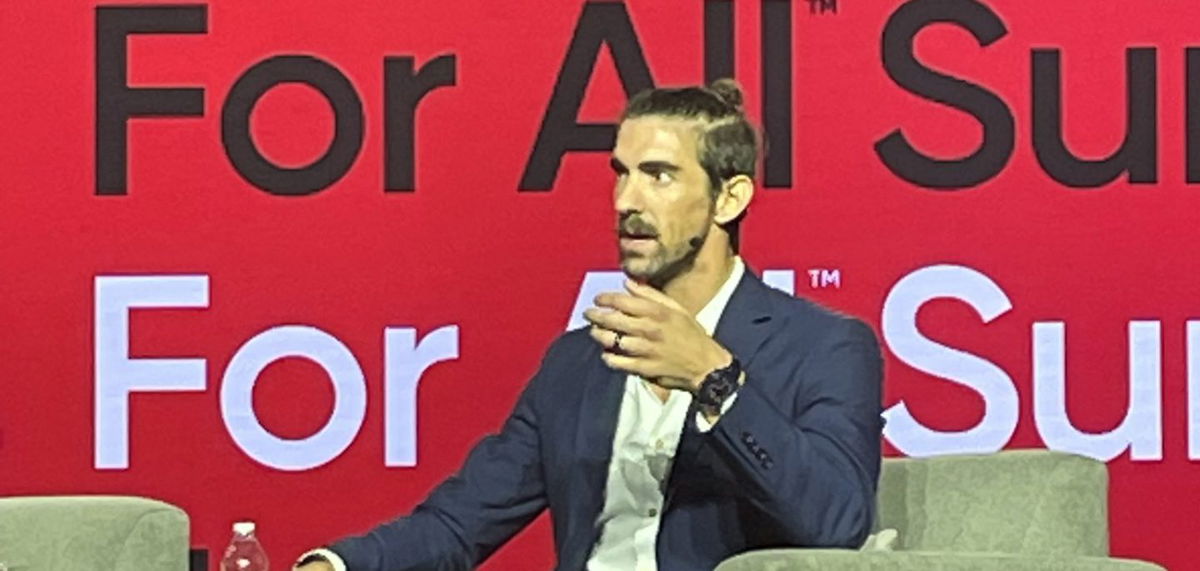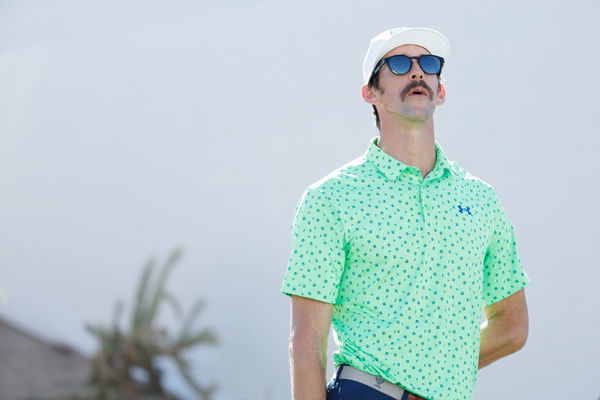

Michael Phelps may now be the most decorated Olympian, a sporting elite leading the best luxurious life, but the journey to that glory was never easy. In life, he did not just have to compete with his competitors, but also with himself. He realized he had an enormous monster to tackle that had nothing to do with the pool. For young Phelps, childhood was perhaps not the ideal; be it his parent’s divorce or his struggle with ADHD, he had multiple battles to fight.
Watch What’s Trending Now!
ADVERTISEMENT
Throughout his career, the swimmer had people to support his physical health, but when it came to mental well-being, there was hardly anyone he could rely on. Phelps was still in his teens when he, for the first time, experienced ‘post-Olympic sadness’ after a successful stint at Athens. It was thus on his course of self-recovery that he learned something important and helped others.
ADVERTISEMENT
Michael Phelps helped Shaun realize something important?
As Phelps started prioritizing his physical and mental health equally after years of struggling with sadness, anxiety, and suicidal thoughts, he realized some people needed help. He realized that there are people who are hardly aware that they need care and support. When asked about how he managed his “anxiety and depression?” He had an honest answer.

Getty
SCOTTSDALE, ARIZONA – FEBRUARY 09: Swimmer Michael Phelps looks on during the pro-am before the WM Phoenix Open at TPC Scottsdale on February 09, 2022, in Scottsdale, Arizona. (Photo by Christian Petersen/Getty Images)
Talking about himself, he said, “for the first time, I would say I was in control of it was in ’16 in Rio,” It was also around this time that he realized that people were surrounding him and were not “aware of what that struggle was.” And one such person was his dear friend Shaun White, the skateboarding champion.
ADVERTISEMENT
Top Stories
Chiefs Announce Relocation From Missouri to Kansas to Build New Stadium

Is Philip Rivers Catholic or Mormon? Religion, Ethnicity & More About Colts QB

Kansas City Mayor Sends Strong Message to Clark Hunt After Chiefs Confirm Arrowhead Exit

LIV Golf Issues Statement as Pro Announces Shock Retirement After Getting Relegated

DK Metcalf Awaits Huge Punishment From NFL After Controversial Incident vs Detroit Lions

Another Almost Fatal Disaster Surfaces From Statesville Airport Amidst Ongoing Greg Biffle’s Crash Investigation

It’s when the two spoke Shaun came to a realization. He could not help but exclaim, “Oh my god, that’s depression? Woah. That’s what I’ve been feeling?” Fortunately for Shaun, he subsequently got the care that he deserved, but still, there are many whose plea goes unheard.
ADVERTISEMENT
Phelps shows the way out?
Having had to struggle with his mental well-being, Phelps knew the difficulties. Thus, his personal experience prompted him to talk more about mental health. He knew that his “depression and anxiety are never going to just disappear.” However, he understood that some ways and people could help him.

Getty
SANTA CLARA, CA – JUNE 18: Michael Phelps, left, speaks to the media at the George F. Haines International Swim Center on June 18, 2015, in Santa Clara, California. (Photo by Don Feria/Getty Images)
Phelps entered a treatment facility in 2014 and was there for 45 days. His resort to professional help helped him in significant ways. His mental health improved, and he started to feel better. Since then, he has dedicated himself to talking more about the issue.
ADVERTISEMENT
Watch This Story: Olympic Gold Medalist Chloe Kims Celebrity Dog Features In Her First Advertisement
Last year when Simone Biles opened up on her struggles with Phelps was one of the few who extended his support. He is truly an inspiration!
ADVERTISEMENT
ADVERTISEMENT
ADVERTISEMENT
ADVERTISEMENT

